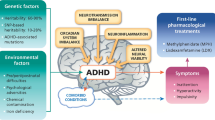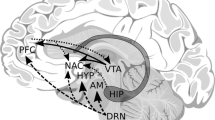Abstract
Previous studies have shown a high level of heritability for most kinds of substance abuse. Certain single nucleotide polymorphisms (SNPs) or haplotypes have been shown to influence methamphetamine abuse or the related psychosis. Among the most related pathways in dependence to methamphetamine are dopaminergic system-related genes especially V-akt murine thymoma viral oncogene homolog 1 (AKT1). In the current investigation, we genotyped two intronic variants within the AKT1 gene (rs2494743 and rs2498794) in a population of Iranian methamphetamine-dependent individuals and controls. There were no significant differences in alleles, genotypes, or haplotype frequencies of rs2494743 and rs2498794 between cases and controls. Consequently, our study excludes participation of these SNPs in susceptibility to methamphetamine dependence. However, other variants within this gene might affect this trait, so future studies are needed to assess associations between other AKT1 variants and methamphetamine dependence.
Similar content being viewed by others
References
2013 American Psychiatric Association. Diagnostic and statistical manual of mental disorders (DSM-5®), American Psychiatric Pub.
Barr AM, Panenka WJ, Macewan W, Thornton AE, Lang DJ, Honer WG, Lecomte T (2006) The need for speed: an update on methamphetamine addiction. J Psychiatry Neurosci 31:301–313
Beaulieu, J. M., Sotnikova, T. D., Yao, W. D., Kockeritz, L., Woodgett, J. R., Gainetdinov, R. R. & Caron, M. G. 2004. Lithium antagonizes dopamine-dependent behaviors mediated by an AKT/glycogen synthase kinase 3 signaling cascade. Proceedings of the National Academy of Sciences of the United States of America, 101, 5099-5104.
Dudek H, Datta SR, Franke TF, Birnbaum MJ, Yao R, Cooper GM, Segal RA, Kaplan DR, Greenberg ME (1997) Regulation of neuronal survival by the serine-threonine protein kinase Akt. Science 275:661–665
Emamian ES, Hall D, Birnbaum MJ, Karayiorgou M, Gogos JA (2004) Convergent evidence for impaired AKT1-GSK3beta signaling in schizophrenia. Nat Genet 36:131–137
Hart AB, Engelhardt BE, Wardle MC, Sokoloff G, Stephens M, De Wit H, Palmer AA (2012) Genome-wide association study of d-amphetamine response in healthy volunteers identifies putative associations, including cadherin 13 (CDH13). PLoS One 7:e42646
Hashimoto M, Bar-on P, Ho G, Takenouchi T, Rockenstein E, Crews L, Masliah E (2004) Beta-synuclein regulates Akt activity in neuronal cells. A possible mechanism for neuroprotection in Parkinson’s disease. J Biol Chem 279:23622–23629
Heinzerling KG, Demirdjian L, Wu Y, Shoptaw S (2016) Single nucleotide polymorphism near CREB1, rs7591784, is associated with pretreatment methamphetamine use frequency and outcome of outpatient treatment for methamphetamine use disorder. J Psychiatr Res 74:22–29
Ide M, Ohnishi T, Murayama M, Matsumoto I, Yamada K, Iwayama Y, Dedova I, Toyota T, Asada T, Takashima A, Yoshikawa T (2006) Failure to support a genetic contribution of AKT1 polymorphisms and altered AKT signaling in schizophrenia. J Neurochem 99:277–287
Ikeda M, Iwata N, Suzuki T, Kitajima T, Yamanouchi Y, Kinoshita Y, Inada T, Ozaki N (2004) Association of AKT1 with schizophrenia confirmed in a Japanese population. Biol Psychiatry 56:698–700
Ikeda M, Iwata N, Suzuki T, Kitajima T, Yamanouchi Y, Kinoshiya Y, Sekine Y, Iyo M, Harano M, Komiyama T, Yamada M, Sora I, Ujike H, Inada T, Ozaki N (2006) Positive association of AKT1 haplotype to Japanese methamphetamine use disorder. Int J Neuropsychopharmacol 9:77–81
Kendler KS, Karkowski L, Prescott CA (1999) Hallucinogen, opiate, sedative and stimulant use and abuse in a population-based sample of female twins. Acta Psychiatr Scand 99:368–376
Koizumi H, Hashimoto K, Kumakiri C, Shimizu E, Sekine Y, Ozaki N, Inada T, Harano M, Komiyama T, Yamada M, Sora I, Ujike H, Takei N, Iyo M (2004) Association between the glutathione S-transferase M1 gene deletion and female methamphetamine abusers. Am J Med Genet B Neuropsychiatr Genet 126B:43–45
Li T, Chen CK, Hu X, Ball D, Lin SK, Chen W, Sham PC, Loh El W, Murray RM, Collier DA (2004) Association analysis of the DRD4 and COMT genes in methamphetamine abuse. Am J Med Genet B Neuropsychiatr Genet 129B:120–124
Nishizawa D, Kasai S, Hasegawa J, Sato N, Tanioka F, Sugimura H, Ikeda K & Dobashi Y (2015) Association between AKT1 gene polymorphism rs2498794 and smoking-related traits with reference to cancer susceptibility. Biomed Research International.
Ohtsuki T, Inada T, Arinami T (2004) Failure to confirm association between AKT1 haplotype and schizophrenia in a Japanese case-control population. Mol Psychiatry 9:981–983
Shibata N, Ohnuma T, Kuerban B, Komatsu M, Baba H & Arai H (2011) Genetic association between Akt1 polymorphisms and Alzheimer’s disease in a Japanese population. International Journal of Alzheimer’s Disease, 2011.
SolÉ X, GuinÓ E, Valls J, Iniesta R, Moreno V (2006) SNPStats: a web tool for the analysis of association studies. Bioinformatics 22:1928–1929
Spanagel R, Weiss F (1999) The dopamine hypothesis of reward: past and current status. Trends Neurosci 22:521–527
Toyota T, Yamada K, Detera-Wadleigh SD, Yoshikawa T (2003) Analysis of a cluster of polymorphisms in AKT1 gene in bipolar pedigrees: a family-based association study. Neurosci Lett 339:5–8
Uhl GR, Drgon T, Liu QR, Johnson C, Walther D, Komiyama T, Harano M, Sekine Y, Inada T, Ozaki N, Iyo M, Iwata N, Yamada M, Sora I, Chen CK, Liu HC, Ujike H, Lin SK (2008) Genome-wide association for methamphetamine dependence: convergent results from 2 samples. Arch Gen Psychiatry 65:345–355
Xie Z, Miller GM (2009) A receptor mechanism for methamphetamine action in dopamine transporter regulation in brain. J Pharmacol Exp Ther 330:316–325
Ystrom E, Reichborn-Kjennerud T, Neale MC, Kendler KS (2014) Genetic and environmental risk factors for illicit substance use and use disorders: joint analysis of self and co-twin ratings. Behav Genet 44:1–13
Funding
The current study was supported by a grant from Shahid Beheshti University of Medical Sciences.
Author information
Authors and Affiliations
Corresponding author
Ethics declarations
Conflict of Interest
The authors declare that they have no conflict of interest.
Additional information
Publisher’s Note
Springer Nature remains neutral with regard to jurisdictional claims in published maps and institutional affiliations.
Electronic Supplementary Materials
ESM 1
(DOCX 14 kb)
Rights and permissions
About this article
Cite this article
Ghafouri-Fard, S., Azari, I., Hashemian, F. et al. No Association Between AKT1 Polymorphisms and Methamphetamine Addiction in Iranian Population. J Mol Neurosci 70, 303–307 (2020). https://doi.org/10.1007/s12031-019-01413-w
Received:
Accepted:
Published:
Issue Date:
DOI: https://doi.org/10.1007/s12031-019-01413-w




